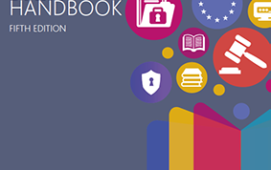
Data assurance services are forecast to be in huge demand as ESG reporting regulations expand and overseers seek to strengthen confidence in the information used by financial institutions and other stakeholders.
Big accounting firms and smaller assurance providers alike are girding for new rules that will require companies to have their regulatory data audited in the same way as their financial figures.
The US’ Securities and Exchange Commission (SEC) and the overseers of the EU’s capital markets have already stated they will expect reporting companies to submit assured and third-party verified data as new rules are rolled out. More recently the UK’s Financial Conduct Authority (FCA) also said its eventual ESG regulations will require data to be inspected by independent assurance professionals.
In response, the International Auditing and Assurance Standards Board (IAASB) has published proposals on guiding assurance practitioners in how they approach the challenge. Like sustainability reporting standards, there are currently no ground rules specifically drafted for auditing ESG disclosures – they are enshrined in a series of guidelines built into other globally accepted assurance standards.
Broad Guidance
As the sustainability space has grown, with ever more activities of businesses being put under an ESG lens, the jigsaw puzzle of best-practice guidance has been unable to keep up the pace of change. Now, the international auditing industry body has put together a framework to guide assurance practitioners in dealing with disclosures submitted under current and future ESG reporting rules.
International Standard on Sustainability Assurance (ISSA) 5000 builds on an earlier International Standard on Assurance Engagements (ISAE) 3000 standard but goes further, responding to recommendations from the International Organization of Securities Commissions (IOSCO) that a full-fledged dedicated set of standards be created that address sustainability issues in greater detail. IAASB chair Tom Seidenstein said the proposals have been drafted now to coincide with the accelerating convergence of reporting standards, which should go hand-in-hand with assurance standards.
“ESG reporting is growing from a voluntary standpoint to one that is mandatory so it was really important to move forward quickly to ensure a framework is in place that jurisdictions could build upon at the very outset,” Seidenstein told ESG Insight. “The alternative would be really difficult – converging different national and international frameworks once they are in place.”
The proposals will be put out for public consultation after the details, intentions and reasons for writing them have been circulated among industry participants. They will be given four months to submit their observations. In the meantime, a publicity campaign will be launched to a wider audience including roundtable discussions in the US, Europe, Asia and South America.
Data Challenges
Issues with data quality, availability and scores have dogged ESG investors and compliance teams as the sustainability space has mushroomed in the past decade. That’s left participants and green asset issuers open to accusations of greenwashing. With assurances from auditing professionals, it’s hoped that the veracity of regulatory submissions can at least be given a clean bill of health and eliminate one source of doubt.
“Investors require confidence that financial information is usable for decision making, and also true and fairly presented without bias – you need the same exact thing on sustainability,” he said. “You need high quality reporting standards, obviously – hopefully globally consistent; you need high quality assurance standards, hopefully globally consistent; and you need high quality regulation that makes sure enforcement is consistent across the globe.
“Only then will investors and other users of the information have confidence throughout.”
Willie Botha, IAASB programme and technical director, helped draught the ISSA 5000. He said it has been purpose-built to be applicable to any reporting standard, including those recently announced by the International Sustainability Standards Board (ISSB), the EU’s own European Sustainability Reporting Standards (ESRS) or those of the Global Reporting Initiative (GRI).
“We have written the standard in such a way that it is suitable for engagements on all sustainability information by providing principle-based requirements that can be applied to all sustainability topics and all aspects of those topics,” Botha told ESG Insight.
“We’ve also written it so that it can be applied irrespective of the mechanism of reporting – whether it’s included as part of an annual report or a separate report – and irrespective of the criteria that’s being applied; it’s framework neutral.”
International Adoption
Once approved ISSA 5000 will provide a voluntary code that Seidenstein hopes will be adopted as an international baseline for assurance engagements in the same way that its financial auditing standards have become compulsory in many jurisdictions.
There’s a good chance that will happen; the International Federation of Accountants (IFAC) recently published a series of reports on sustainability-related reporting and assurance, the most recent of which said that 95 per cent of firms that provide assurance on reported sustainability information use the IAASB’s revised ISAE 3000.
“This will be the leading standard throughout the world and clearly there’s some desire as we moved to mandatory for it to be the basis for national and jurisdictional requirements,” he said.
Subscribe to our newsletter



